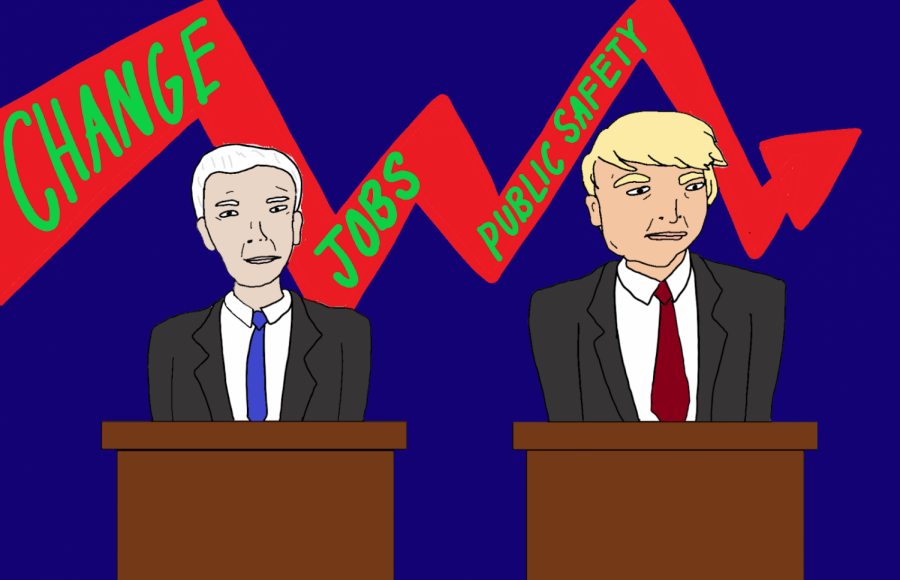Healthcare and Voting Advocacy are Crucial to a Presidential Victory
This year’s election is anything but traditional, and presidential candidates should strive to create realistic policy goals.
While choosing between Joe Biden and Donald Trump seemed like an important decision just over a month ago, it has become a distant memory in light of recent threats of nationwide layoffs and overflowing hospital beds. However, the Nov. 3 voting date still looms, and it seems that now more than ever, the candidate who can run a platform of public advocacy will be poised to win the election.
As COVID-19 cases and deaths continue to spread, candidates will likely be tested by their stance on public health measures. The pandemic is a bipartisan issue, and, as a result, candidates should be able to prove concretely that they have researched methods of reducing the virus’ impact on America’s population.
Although economic downturn is a key concern that should be addressed, human lives should come first for candidates as they create awareness through social media or contribute to causes that are distributing personal protective equipment. Thus, the victor will likely be seen as an advocate for pandemic prevention first and a presidential candidate second.
The strategy of gaining the sympathy of disenfranchised voters worked for President Trump in 2016, but according to a FiveThirtyEight survey, 51.1% of the country disapproves of his response to COVID-19, a figure that has continued to rise throughout the duration of the pandemic.
It is evident that Americans want visible change more than ever, and one area the candidates can prove their dedication is by advocating for novel voting solutions that promote the safety and integrity of the election.
In comparison to the primary elections, the general vote is much more difficult to postpone. With much of the country still practicing social distancing measures, traditional ballot voting may not be a safe option. Although many Americans use mail-in ballots, these comprise less than 30% of the total votes according to MIT’s Election Lab.
Mobile voting is also an option, but an app’s failure to properly count votes at the Iowa Democratic caucus has only contributed to the disillusionment some Americans feel toward the voting system.
The candidate who can advocate for safe, effective and efficient forms of voting will thus be at an advantage, because they will be able to capitalize on and soothe the uncertainty of voters. Whether they promote investments in encrypted mobile voting servers or start media campaigns to show the simplicity of mail-in ballots, a viable solution can greatly benefit a candidate’s public perception.
The era of thoughts and prayers is over, and American voters want a candidate who focuses on actionable change and visible results. Promoting logical solutions can go a long way in remedying America’s chaos, and the country’s next president will be one who shows his focus is battling the pandemic, not his opponent.
Your donation will support the student journalists of Portola High School. Your contribution will allow us to purchase equipment and cover our annual website hosting costs.

Ajinkya Rane is one of the two Managing Editors, and it is his second year in that role. He has previously served as Co Editor-in-Chief and Sports Editor,...

Krisha Konchadi is the front page editor this year on the Portola Pilot. Along with editing and creating the front page, she loves making graphics and...




